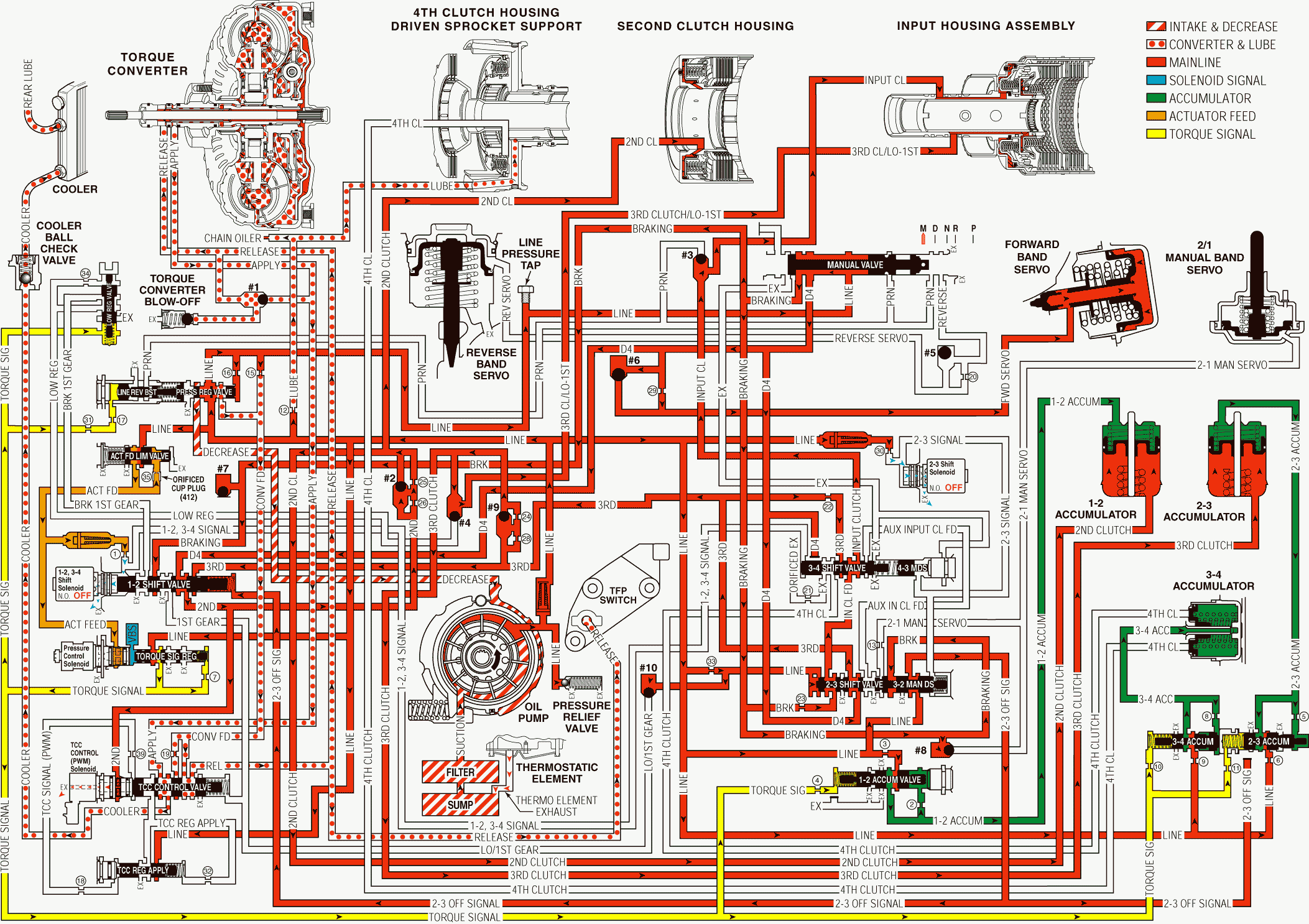Manual Third Gear With Touch Activated Power
A manual 4-3 downshift is accomplished by moving the gear selector lever to the Manual position. In Manual the transmission is hydraulically prevented from upshifting into Fourth gear under any conditions. Also, the input clutch is applied in Manual range to provide engine compression braking in 3rd gear. The following information explains the additional changes during a manual 4-3 downshift as compared to a forced 4-3 downshift. Refer to Overdrive Range, 4-3 Downshift - Torque Converter Clutch Not Applied for a complete description of a 4-3 downshift.
Manual Valve
The manual valve moves into the Manual position and line pressure enters the braking fluid circuit.
2-3 Shift Valve (357)
Allows braking fluid to enter the input clutch feed passage and directs it to the 3-4 shift valve (362).
3-4 Shift Valve (362)
Is downshifted when D3 fluid is fed to the valve. In this position input clutch feed fluid enters the input clutch passage. 4th clutch fluid is exhausted through an orifice.
Number 3 Ball Check Valve (372)
Located in the case cover (400), it is seated against the PRN passage allowing input clutch fluid to apply the input clutch.
1-2, 3-4 Shift Solenoid (SS) Valve (315)
When de-energized, it allows 1-2, 3-4 signal fluid from the 3-4 shift valve (362) to exhaust through the solenoid. However, this event does not have to occur in order to achieve a manual 4-3 downshift.
Manual Third-Second and First Gears
The transmission operates the same in Manual Third as in Overdrive range with the exception of Fourth gear being prevented. The transmission will upshift and downshift between First, Second and Third gears as in Overdrive range. However, engine compression braking is not available in Manual Third -- First gear and the vehicle will coast when the throttle is released.
Drive Range, Manual 3rd - from Overdrive Range - With Touch Activated Power

